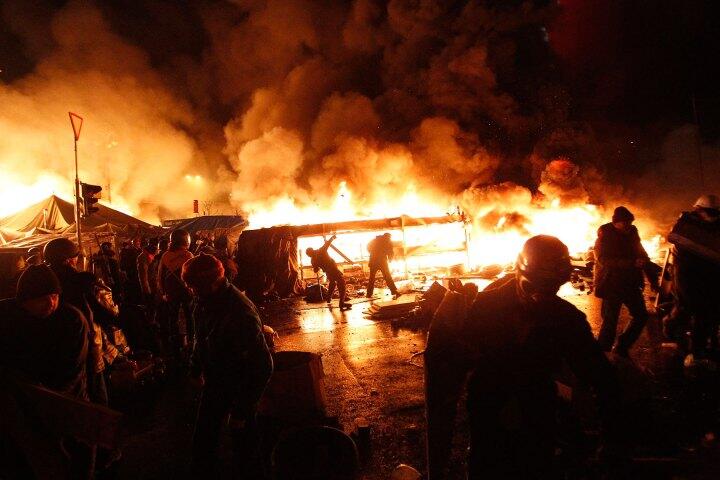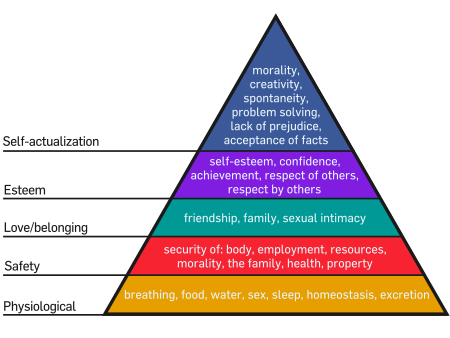When asked this question two days ago, I gave a long comment on the subject. Here’s what I wrote. It’s not meant to be authoritative, just my feelings as an American outsider. The question was both about Russia vs. EU/NATO, with special concern to Estonia, given rhetoric that seems similar to that over Crimea.
It’s not a rosy situation. A couple things are clear-
a) Russia let go of its regional control in the 1990s not because of the arrival of democracy (never arrived, insufficient postage or whatever) or the end of ultranationalism, but rather because at the time their economy had ground to a halt and everyone with a decent education was leaving for the West. They had no ability to project power, so they signed deals like the one with Ukraine that guaranteed its sovereignty.
b) Putin-era Russia clearly has a way of gaining territory. They support a nominal independence movement within a country. One may remember Abkhazia and South Ossetia as being the reasons for the Russians invading Georgia in 2008. They’ve done a similar thing with Transnistria in Moldova, which doesn’t even share a land border with Russia.
However, let’s be clear here. if Russia decides to invade a NATO nation- which includes the Baltic states- there will be serious retaliation beyond strong words. This isn’t just an American thing- one of the most important NATO nations historically is Turkey, who a) are now in a very strange position since they control the only way out of the Black Sea for Russia’s Crimean naval bases, b) just saw a half million Tatars (who are Muslim and Turkic) fall under the control of a very racist, ultranationalist power, and c) has hated Russia since the creation of Russia a millennia ago. The Ukraine wasn’t in NATO, or the EU, was very far to the east, and was politically unstable with a very weak military- a large portion of which defected. That’s not going to happen again.
NATO is a military alliance and not a theoretical one- Kosovo, Libya, Afghanistan. If they’re willing to fight on the other side of Asia, they’ll fight in their own backyards when it’s one of their members. Article 5 has been used, so it’s not just words on paper.
Regarding Estonia, there are some things to point out here. Estonia’s history under post-World War II Soviet control involved sending a lot of Russian speakers into the country to dominate it culturally. However, as the Christian Science Monitor points out in the feature on the issue, a lot of them speak Russian, but are not ethnically Russian. Jews, Ukranians, Finns. They cite a poll that shows the Russian population there are split right down the middle on whether Crimea was a good things, with most having no opinion at all. Clearly if Estonia circled the wagons it’s not “Estonians vs. Russian speakers” clearly divided.
Of course, what a ‘conflict’ means is important. The Cold War had much bigger situations- for instance, the forcible blockade of Berlin. One will hope that the lack of top-level cooperation that made Soviet control of places like Czechoslovakia and Hungary possible (they used to have friendly Communist governments, now they’re run by the majority non-Russian groups) means that Russia will be checked. On the other hand, it’s difficult to envision a near future where eastern Ukraine isn’t drawn into the Russian orbit. It’s not like Libya- the Ukrainian government is also disorganized like the rebels there, but Gaddafi and the Russian military are two vastly different classes. If Russia occupies, there would need to be a superior force on the ground.
Unfortunately, the idiocy that was (and is) Afghanistan has really killed the whole “boots on the ground” idea- this is good in some sense since it makes diplomacy and other means more relied upon. However, some countries are too big to threaten. Russia and China are the two big ones.
Now I’m a strict non-violent proponent so I don’t think using military force to drive the Russian military off is the ‘right’ course of action. Sealing the Bosporus to military vessels contingent on Russia withdrawal, mixed with a large-scale boycott and freezing the billions upon billions of dollars the oligarchs have stashed in European countries might help, as some off-the-cuff ideas. Certainly making a concrete plan where NATO troops would be deployed to places like Estonia known would dissuade Russia occupation- just a note that there is something beyond ‘strong reservations’. The Warsaw Pact countries joined EU and NATO because they feared continued Russian control. Even if places like France are ambivalent, any former country under the Iron Curtain with a pocket of Russians knows that they are the next potential domino.




